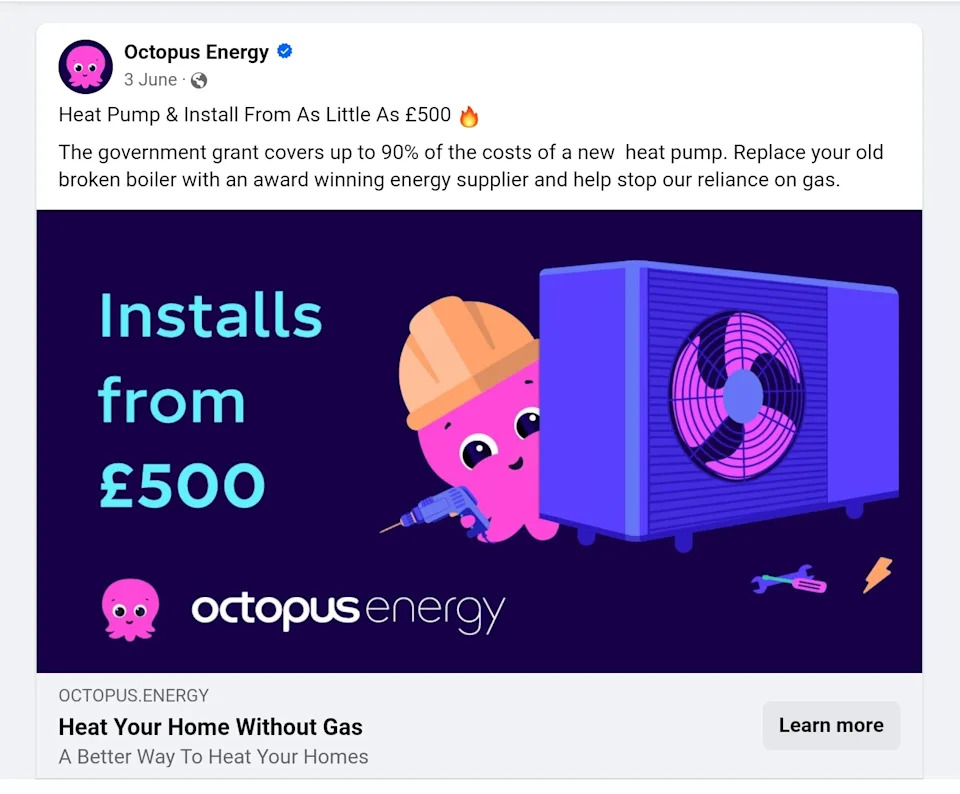
Introduction
In a significant move that underscores the evolving landscape of renewable energy marketing, Octopus Energy has been ordered to halt advertisements promoting heat pump installations. This decision, issued by the Advertising Standards Authority (ASA), raises important questions about the portrayal of energy efficiency solutions and their impact on consumer behaviour amidst the UK’s push towards greener alternatives.
The Rationale Behind the Ban
The ASA’s ruling came after complaints from concerned consumers who argued that the adverts presented misleading information regarding the costs associated with heat pumps. Octopus Energy’s marketing asserted that heat pumps could save users substantial amounts on their energy bills, a claim that some argued did not adequately reflect the true upfront and ongoing costs involved in installation and maintenance.
The watchdog highlighted that while heat pumps can offer significant savings over time, the initial investment can be prohibitively high for many households. In a country where energy prices have surged, the commitment to switch to renewable solutions like heat pumps requires a careful and realistic portrayal in advertising to prevent misleading potential customers.
Implications for Renewable Energy Marketing
This ruling carries broader implications for the renewable energy sector. As demand for greener solutions continues to rise, companies may face increased scrutiny over their marketing practices. The determination by the ASA signals to providers that transparency is paramount, and potential customers should be provided with clear and accurate information about both the benefits and costs involved with switching to renewable energy systems.
In the wake of this ruling, Octopus Energy has expressed disappointment, asserting its commitment to providing customers with environmentally friendly solutions that can lead to long-term savings. The company has also hinted at plans to revise their marketing strategies in compliance with the ASA’s guidelines while ensuring that the advantages of heat pump technology are still effectively communicated.
Conclusion
The Octopus Energy advert ban serves as an important reminder for businesses in the green energy sector about the need to balance enthusiasm for innovative solutions with the responsibility to inform consumers accurately. As the UK navigates its path toward net-zero emissions, maintaining consumer trust through proper communication will be vital. Stakeholders will need to adapt to regulatory expectations, and transparency may emerge as a pivotal factor in consumer acceptance and adoption of renewable technologies moving forward.
You may also like

The Importance of Building a Sustainable Company

The Vital Importance of Ground in Various Sectors

Understanding the Significance of Energy in Our Lives
SEARCH
LAST NEWS
- Swansea FC: Dramatic Stoppage-Time Equalizer Preserves Unbeaten Home Record
- Newcastle United Advances to Last 16: What We Know
- Tesla Faces New Competition as Rivian R2 Prepares to Enter UK Market
- Can Sheffield United Overcome Coventry City in Their Upcoming Clash?
- Emre Can Returns to Boost Borussia Dortmund’s Champions League Hopes